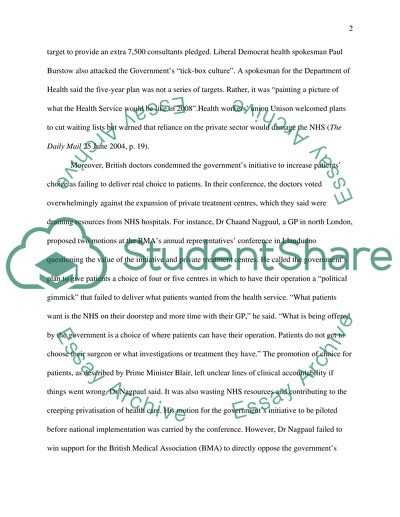Cite this document
(“National Health Service Improvement Plan Essay Example | Topics and Well Written Essays - 1000 words”, n.d.)
National Health Service Improvement Plan Essay Example | Topics and Well Written Essays - 1000 words. Retrieved from https://studentshare.org/health-sciences-medicine/1530667-national-health-service-improvement-plan
National Health Service Improvement Plan Essay Example | Topics and Well Written Essays - 1000 words. Retrieved from https://studentshare.org/health-sciences-medicine/1530667-national-health-service-improvement-plan
(National Health Service Improvement Plan Essay Example | Topics and Well Written Essays - 1000 Words)
National Health Service Improvement Plan Essay Example | Topics and Well Written Essays - 1000 Words. https://studentshare.org/health-sciences-medicine/1530667-national-health-service-improvement-plan.
National Health Service Improvement Plan Essay Example | Topics and Well Written Essays - 1000 Words. https://studentshare.org/health-sciences-medicine/1530667-national-health-service-improvement-plan.
“National Health Service Improvement Plan Essay Example | Topics and Well Written Essays - 1000 Words”, n.d. https://studentshare.org/health-sciences-medicine/1530667-national-health-service-improvement-plan.


